"The greatest wealth is health." – Virgil
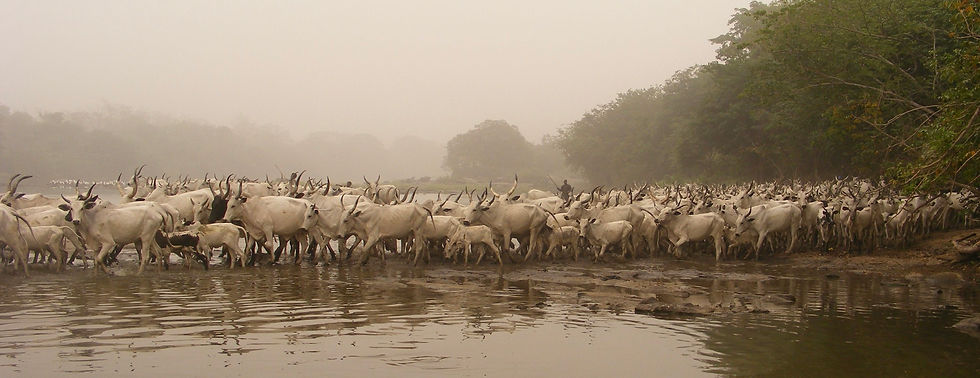
This week I had my PET scan. Over the course of the past six years, first, with prostate cancer and more recently the last eighteen months due to stomach cancer, I have had numerous scans along with ultrasounds and x-rays. I now know sort of what to expect and have some experience of the procedure. Let's just say you are not so tense about the known.
“The unknown causes much more anguish than the known.” - Peter McSporran
A PET scan uses a nuclear marker so there is some preparation including the intravenous application of the nuclear marker via cannula into your blood. This gives you plenty of time to take in what is going on around you rather than worrying about what will come next.
As you may guess most of the patients who visit the ‘Medicina Nuclear’ at the University Hospital, Coimbra are cancer patients. I know when I first visited I looked very unwell. In saying that, following my treatment, it is always a shock seeing how ill some of the other patients look. Especially the elderly as I sometimes think that their demeanour is as much to do with their feeling of fear or even defeat, rather than their illness. It is not the elderly that give me the biggest poignancy, but rather the young. I have not seen any children down there in that specific department, it is one floor down from the ground in the hospital. Perhaps they have a dedicated section or day for them as there is a play area and rest area for children. There are however young men and women only recently into adulthood, these I really feel sorry for. Nonetheless, they put on a brave face, unlike the despair of the elderly, the young still emit hope.
“Never feel pity for yourself, save it for others. Equally, do not show this pity, rather offer positive comfort not just to the victim but also their families.” - Peter McSporran
Just for interest, they handle the nuclear material very carefully, each dose in its own little, I presume, lead chamber, which allows the fluid to be introduced to the drip line without removing it from the cylinder. Contrary to what many of you may think, it does not light you up. It is tedious in that it takes about three hours from entry procedures to scan completion. I barely waited fifteen minutes before it was my turn, no complaints about that or about the pleasant efficient service despite the nurses, technicians and I having no common language. We got along fine. I am repeating myself but I always leave any medical establishment here in Portugal with admiration for the patience of the staff, especially with a dumb Scotsman, who after five years residing here, still cannot speak their language.
Each week I post my blog on three Apps, Facebook, Twitter and Linkedin. I noticed my views on Twitter had disappeared so I called in my IT expert, Rozanne, to try and find the problem. It did not take her long to find out I now had a second Twitter account where my posts were going unknown to me let alone my followers. I do not know why this came about some five weeks ago, it now appears to be related to me using a Gmail account. More importantly, you just can't get rid of a Twitter account that easily as we were to find out. What an effort. Over an hour of Rozanne’s time, I would have never managed without her. This seems to be the way of this modern world. We ‘old toppies’ are not slowly but speedily being shunted into the backwaters of society due to our lack or ability to keep up with IT. To hasten this fate, nearly all airlines, pension and service providers, especially those related to Government Departments, make both access to their sites and completion of their online forms or questionnaire’s impossible for someone over fifty to understand, let alone complete. What are the poor uneducated masses in places like Africa meant to do? As we all know all the do-gooders do not create jobs but certainly want to ensure their service departments and data are up to date in the virtual world? Even before the advent of the internet, mail services in Africa were breaking down as were landline telephones. Now with IT, it has given Governments the excuse to drop those tangible services requiring constant maintenance in favour of the virtual services which also have their technical challenges even in cities, let alone the rural areas. The majority of the world's population has neither the means nor capability to use them. Do those champagne-socialists do-gooders care with their MBAs required to carry out social programs? Their God is data, even if inaccurate, to extrapolate for their own benefit even if unknown to the those perceived to be benefactors.
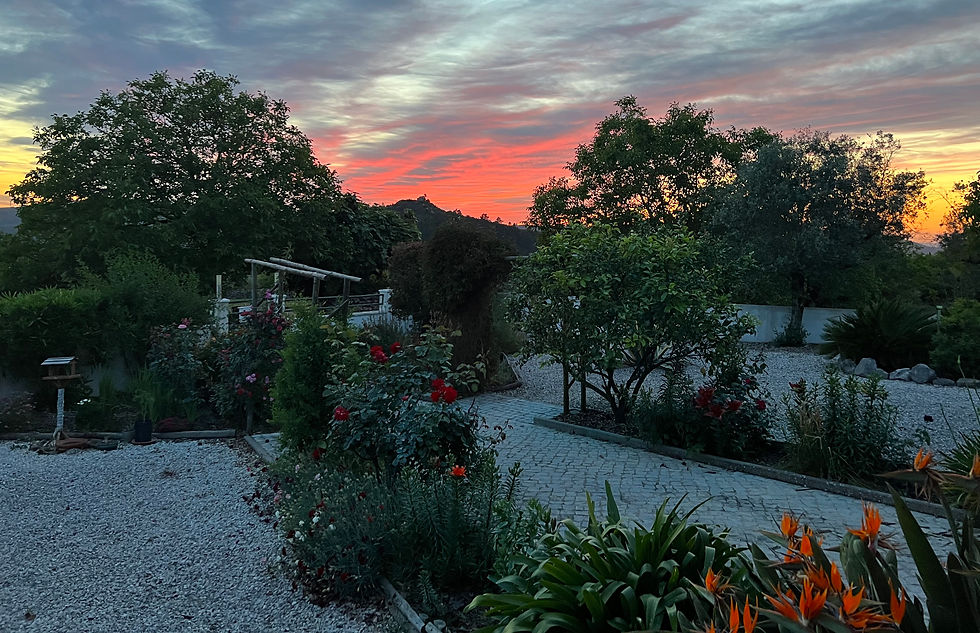
On Twitter I have been following a celebrity cancer patient, Janey Godley, who had her PET scan the same day as me. Her scan, following chemotherapy for ovarian cancer. She is a Scottish comedian who is happy to share her very personal emotions on a daily basis in her fight with this disease. She was diagnosed a year after me so I have the advantage of having had positive results up to now while she is awaiting the outcome of her treatment for stage 3 cancer. What is nice is she writes about what she feels each day portraying a roller coaster of emotions. Recently in March, she announced she may have had an ‘epiphany event’. I would say I am lucky not to have had that either, I am confused enough already therefore do not need to bring in any unknown parties at this time of my life. If you are religious I am sure you consider me blasphemous or said more simply, profane. I really wish Janey well, she is getting lots of love and support through this anxious time for her which is so important.
Back In The Sticks and Preparation for Marriage
The chorus of John Edmond’s song about call-ups:
‘We're back in the sticks
We're back in the sticks
We're back in the sticks again
It's the tenth time we've been
In a flippin' shateen
We're back in the sticks again’
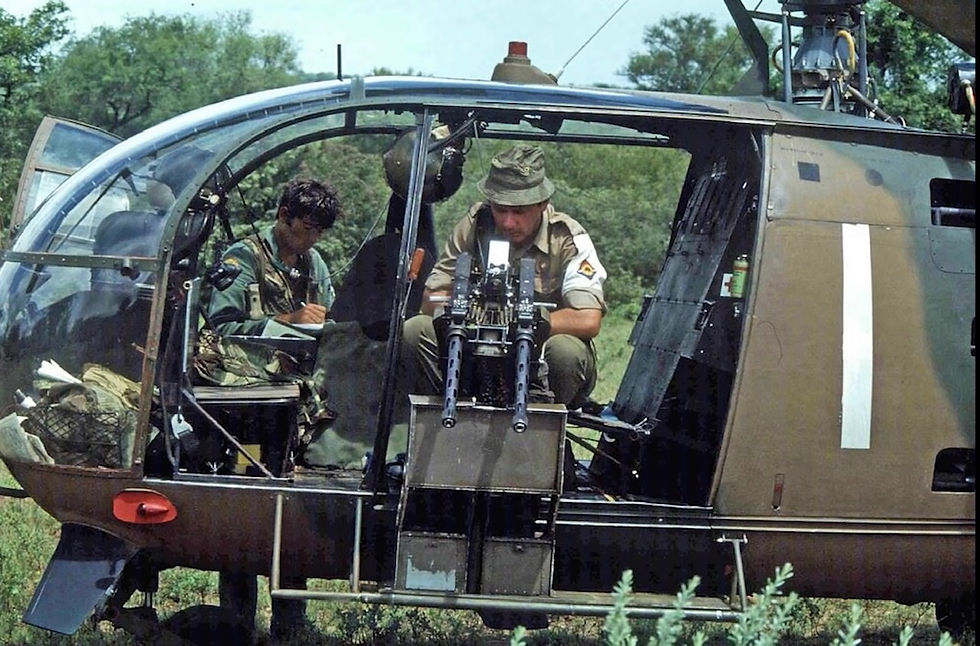
My farming year in 1976 was mainly spent in the shateen (bush) on call up but never-the-less I had a reasonable season farming and moving up to Chifumbi. I still travelled to Insha Allah most days after starting the farm operations where I resided, I, being left very much on my own to get on with the job. New neighbours in the form of the Nortiers, de Marigny, Stobarts and Forsyths, while at the edge of the TTL were the Connors who also had a farm in partnership with the late Ian Ross next door to me on Chifumbi. I mention the Connors as they were right next to a security hotspot with CTs active all the time on their doorstep and also because Owen and Dawn are one of those families for whatever reason, I seem to keep connected to in life. The Connors once met as neighbours would offer us shelter later in the war when I was in PATU (Police Anti Terrorist Unit), then after the war, Owen and I found ourselves involved in the Crop Seeds Association, then the Seed Co-op board and finally the Seed Co for many years. For a while his late son Sean was my neighbour in Darwendale, then in Zambia, I employed his other son Kevin for a seed potato project which he still runs as a partner in Northern Zambia. Strange that for no logical reason you find families or individuals may stay connected. It always surprises me.
The de Marignys I mention, as after the war, being of French origin like most other European countries they were compensated by their home country for the loss of their farm and able to start a new life. For whatever reason, the only countries not to help their citizens by descent or birth were the South Africans and British. Both could stand accused of being party, in fact, active contributors to the pain we were to suffer long after independence.
On September 18th 1976 I was to be married. Still on call-up, this time fairly close to home in the farming district of Matepatepa only some 120 km from Salisbury. Yes, we were now being deployed into commercial farming areas closer to the capital. In the early days of the war, it was Centenary, Mount Darwin, Mutoko, Murewa, Mayo and Sipolilo that were affected. All a considerable distance from the cities, now CTs could be found within 50 km. For example in the Chikwakwa TTL right next to the Connors some 15 km from my home, they were now present. These areas closer to home were generally covered by police reserve and PATU although the army was also known to react to farm attacks.
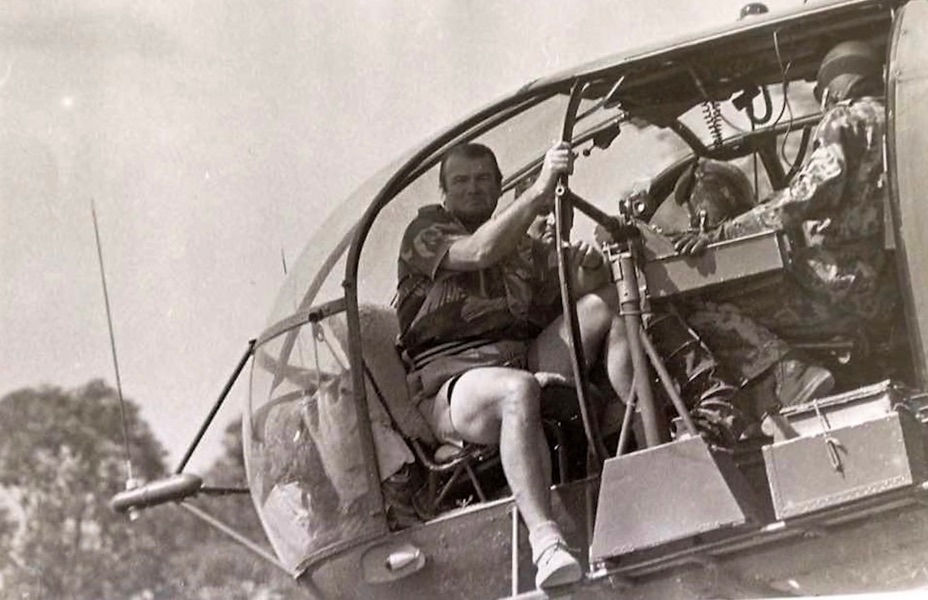
Of course, I remember the events well around my marriage. My parents were coming from Scotland, a real surprise. Due to me being on call-up, the Foxes and Belinskys kindly looked after them on their arrival in Rhodesia. My commanding officer at the time was Rob Haarhoff, a farmer who was to become a vicar following the war, kindly allocated a 2.5 Unimog and driver to take me to town. Normally if you had to return home you had to scrounge a lift on a resupply convoy. Convoys were the rule now. People moving between cities and towns now travelled in protected convoys, farmers due to where they lived and worked just had to take their chances on their own. By doing this he was also able to keep me in the field until the last minute. On arriving back in Salisbury late in the evening, I caught up with the pre-marriage duties, one of which was to take my parents to the Rosses in Umtali, my sister’s in-laws. This took place at night due to lack of time, so a swift 250 km trip through a number of hotspots. I think the fact that I was armed was as disquieting to them as my driving. At that time few cars were on the road at night with many areas now under curfew.
The Belinskys planned a garden wedding for Diane and I. Naturally, most of the guests were farmers, many friends of my new family who would later become personal friends of mine too.
Alistair Smith was my best man while my groomsmen were William Walker, my old college friend, David Smith, Alistair's brother and my brother-in-law to be Mike. The night before the wedding they took me out on a stag, much drinking, nothing like what seems to be the normal extravagances of today. The highlights of the night were a steak at the Kaya Yama at Park Lane and a dry swim at the Mount Hampden Motel on the way home. Dry, as nobody bothered to check if the pool had any water in it when they threw me in. I must have landed on my head as I suffered no serious injury. I had previously escaped serious wounds in the same hostelry when returning home late one Sunday evening to the Smiths farm where I found myself and an elderly couple the only patrons at the bar overseen by the owner's Reg and Faye. The elderly couple were arguing in what I presume was a drunken stupor when suddenly I found myself on the floor. As it turns out the elderly lady lost it with her husband, threw a roundhouse punch which somehow he ducked to avoid and in doing so, she hit me on my ear at the end of her swinging trajectory. Down I went, dazed, surprised, but not too badly hurt other than to my pride. Those tending the bar found it amusing, only telling the couple perhaps they had had enough.
“Sit next to a drunk at your own peril. A number of poor outcomes can come of it, best to remain thirsty and leave.” - Peter McSporran
Reflecting, I was now twenty-six which would probably be young to get married nowadays but then, with the war going on, it seemed to be very old. My bride Diane was seven years younger, girls got married young in the Rhodesian war years while men were normally in their early twenties. Nobody worried about financial security as, during a war, there were bigger issues to worry about. I did shock my in-laws by suggesting we should ask the guests just to send Rh$25 each rather than a present. Two hundred guests would have given us the required Rh$5,000 deposit to raise a loan with Landbank to go farming in a border area. Needless to say, that idea was nipped in the bud.
Diane and I had to pay the vicar, Norman Wood, who was to undertake the wedding and the mandatory pre-marriage lecture. I remember clearly to both our annoyance, he declared that the average marriage for people doing call-ups only lasted two years and he expected ours to last no longer. Perhaps this was as an incentive for us to prove him wrong, I have often wondered. He was a very popular man, being the Chaplain General of the Rhodesian Army at the time. No airy-fairy about him, purely pragmatic. The scene was now set for the wedding to take place at Arden Estate, the Belinsky farm, on the 20th of September.
Farewell to Benin 2010
I thought I would add a couple of paragraphs to my Benin trip. The remaining two ranches we visited were smaller and closer to the capital while still near the Ouémé River, therefore the Nigerian border. While the properties were designated as ranchers, being Government-owned, they in reality had few if any cattle. I had to investigate the soil and climate suitability for other types of production including plantation and crops. Soils were easy and as with anything to do in African agriculture, it is wise to see what the locals are growing. This normally entails an introduction to the local village head and all the protocol it demands. It is extremely bad manners to just enter a village or homestead in Africa and ask questions. First, is to allay any suspicions of representing some agency that may take their land or impose new rules upon them. Yes, you can get straight to the point and be rebuffed. Normally you will only be told what the questionees perceive you want to hear. Hospitality is also a big thing with food being offered to most guests expected or not. Do not refuse this offer of hospitality. Over the years I have eaten some weird meals, Cozido or Sarrabulho in Portugal are mild in comparison. As in many West African countries, Grasscutters (cane rats) are prized meat in Benin, although not as common as in Ghana, while groundnuts and beans accompany the main starch which is the tasteless yam. Yams are cooked many ways, the safest being fried like large chips. In Benin, they have a dish called Kuli Kuli which is deep-fried peanut balls or sticks. It actually tastes quite good, remember it is bad manners to turn down food. Ensure you have your own water with you so that you do not have to drink the water offered. Be even more aware of the strength of local alcohol produced for effect, not taste.
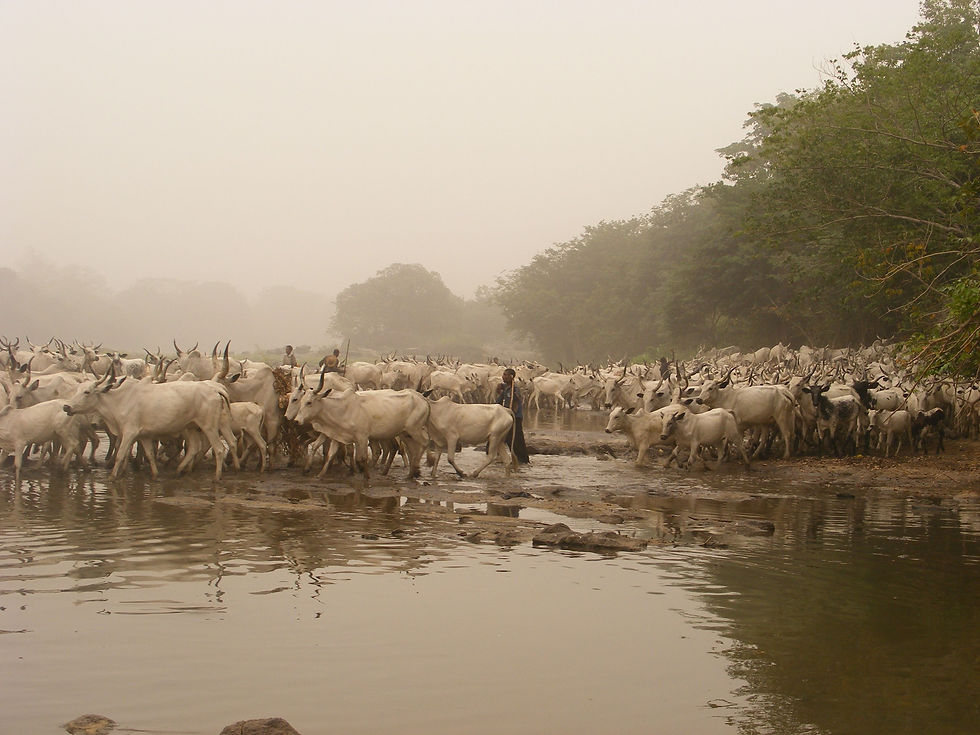
Each time we stopped and asked about crops and yields, the world of fantasy opened up. Groundnuts no problem, four tonnes a hectare, maize, six tonnes and yams, well, unmeasurable. Remember the people telling you this have little concept of a tonne or a hectare but have been asked the same question often before. My partner believed them saying for what reason would they lie. I answered with my usual shrug and listened putting my own findings in my report.
“There is never a more unreliable answer given than that offered by someone who wishes to please.” - Pete McSporran
As these farms were close to the Ouémé River we were interested to come across it a number of times. Like most African borders only the posts are manned while the locals criss-cross at ease. I decided to cross over the river just because it was there and while on the other side a huge herd of cattle driven by Fulani crossed from the Benin side into Nigeria. No sooner did the one herd disappear into the Nigerian bush than another arrived and so it went on. The numbers were staggering. You do not mess with Fulani like all pastoral herders be it in Ghana, Uganda, Tanzania or Kenya, you mess with them at your own peril. They are continually at loggerheads with the locals and respect no boundaries let alone fences. Murder is a common way to resolve disputes.
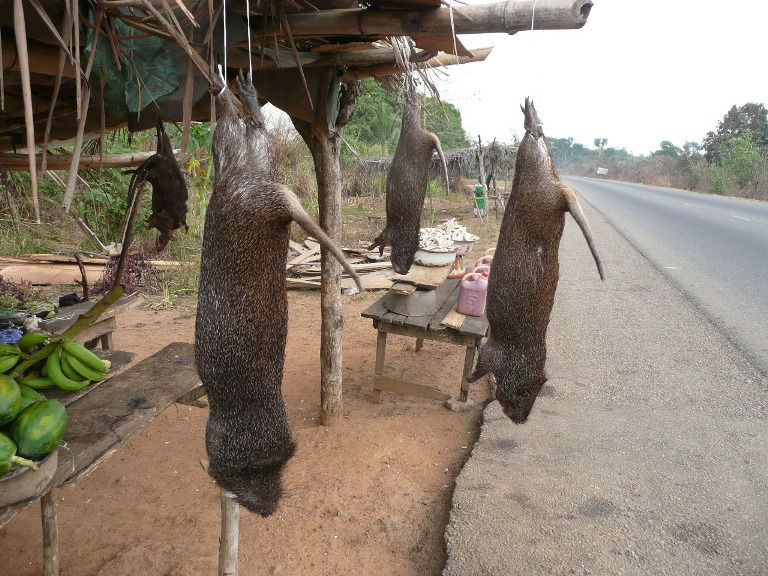
The final ranch was small and in the end with all the challenges, not least the Fulani my recommendation was to leave the area well alone. Pastoral and squatters, being politically correct you just call them settlers, should be a red flag for any investor planning to utilise the land for crops or livestock. There are too many headaches all underplayed by the national and local authorities.
On returning to Cotonou we debriefed the Ministry, I spent the final night looking for a Voodoo temple finding only tourist establishments, not the real thing, leaving the next day back to Zambia avoiding Nigeria. Funny, I have never felt comfortable in African Francophile countries, probably just my cultural background.
Disclaimer: Copyright Peter McSporran. The content in this blog represents my personal views and does not reflect corporate entities.
Comments